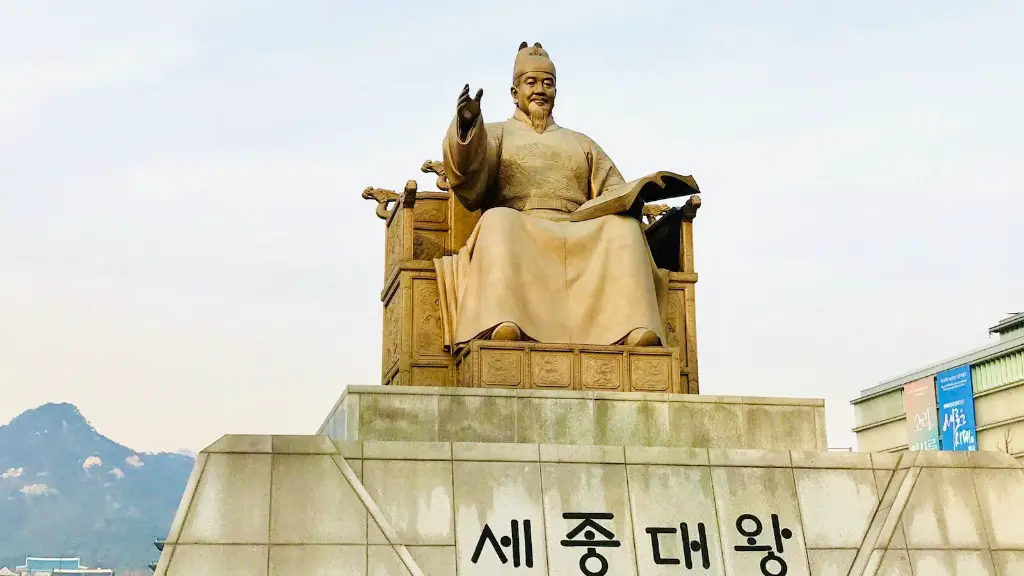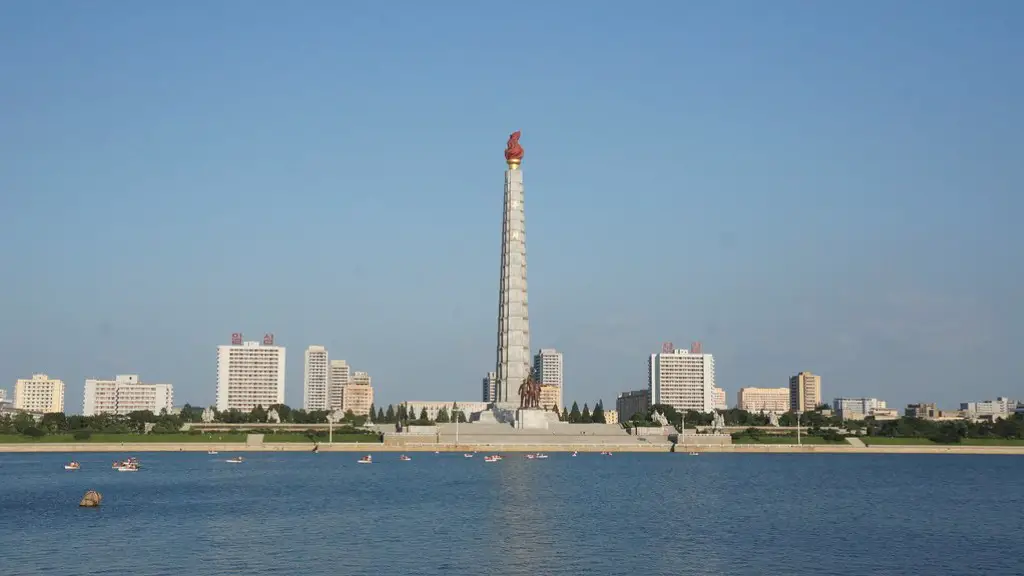China’s relationship with North Korea has been constantly under international scrutiny since North Korea’s official belligerent stance was declared in the wake of the Korean War in 1950. In recent years, the friendship between Pyongyang and Beijing has been impacted by the quick succession of further provocations on the part of North Korea, ranging from nuclear weapons development to trade sanctions. It can be difficult to accurately gauge the extent of China’s commitment to the North Korean regime and their willingness to become involved with the escalation of tensions. Even so, there are some signs that China is still loyal to the North Korean cause.
North Korea’s economic dependence on China has been estimated at over 70%, and this dependency extends to matters beyond economics. China is an essential ally for North Korea in terms of both diplomatic cover and military support. Chinese foreign ministers supported Pyongyang in the United Nations Security Council many times despite heavy international pressures. In addition, reports have surfaced that China has also offered military advice and assistance to North Korea, including providing nuclear technology.
China has repeatedly expressed its adherence to the political system of North Korea, which the Chinese government considers a ‘sovereign state’. Thus, any foreign political intervention to Pyongyang has been strongly criticized and vetoed by Chinese representatives in the UN. It may be reasonable to assume that as long as animosity toward the international community persists, China will remain devoted to the North Koreans.
The Chinese government has been vigilant in defending North Korea against pressure from the Western countries. It often claims that the United States has ‘no right’ to call for a regime change and that any criticism towards the North Korean leaders is politically charged and inaccurate. In addition, Beijing has consistently insisted that economic sanctions should not be imposed on North Korea as a way to force them to curb their nuclear ambitions.
The attitude of the Chinese government, however, may also be explained by their own interests. It is no secret that China is highly suspicious of US motives and is unwilling to allow a US presence in North Korea — a situation they perceive as a threat to their own sovereignty. China’s alliance with North Korea gives them an important buffer zone against US and its allies in the region.
In the end, it is difficult to say conclusively whether China will remain committed to North Korea’s demands. After all, North Korea is a volatile state and its relationship with its closest ally is constantly changing. Despite all this uncertainty, China still appears to be standing firm in its commitment to Pyongyang’s cause.
Impact of China’s Allegiance on International Relations
The willingness of China to defy international pressures to end its manipulation of the North Korean regime has certainly had a disruptive effect on international relations. It has caused tension between China and its Western partners, and has resulted in trade sanctions and other retaliations from Western countries. Furthermore, the lack of trust between China and the US in regards to North Korea continues to strain their diplomatic ties, leading to further conflicts.
Moreover, due to North Korea’s close ties with China, most Western countries have a hard time negotiating with the country. This is because of the country’s relationship with its closest ally and any threats not directed at China may be ignored or not seen as credible by North Korea.
China’s continued support for the North Korean government has also reinforced the country’s refusal to accept foreign intervention or any sort of compromise. Without China’s interference, the countries of the world would have far more leverage in terms of establishing economic or political sanctions against North Korea.
The international community has denounced China’s alliance with North Korea, but it is unlikely that this criticism will cause China to change its stance. Instead, China will continue to be unwavering in its support of the North Korean regime, despite the potential consequences on international politics.
China’s Objectives Behind its Allegiance
One of the reasons why China has remained adamant in its support of North Korea is due to the strategic importance that North Korea represents. North Korea serves as an important buffer zone between itself and US-aligned South Korea. Thus, any instability in the Korean peninsula would be of great concern to China.
Moreover, by having North Korea under its protection, China can benefit politically and economically. The fact that North Korea is in such complete dependence of China gives the Chinese government a lot of leverage over North Korea and its decisions. China can influence North Korean policies and makes sure that its own interests are safeguarded.
Furthermore, China has a vested interest in maintaining a strong relationship with North Korea — such as through trade pacts or military cooperation — in order to preserve its influence over the region and keep the United States out. By standing behind North Korea, China is able to project its own power on the world stage and ensure its own security.
Finally, the Chinese government is keenly aware that North Korea’s security concerns are their own. If North Korea were to become destabilized, it could potentially spill over into Chinese territory, and Beijing would be left to face the consequences.
Analysis of China’s Allegiance
Though many criticize China’s stance on North Korea, it is understandable why the Chinese government would be loyal to the North Korean government. China has much to gain from its current relationship with the country, and its continued support for Pyongyang serves as a way for it to project its influence on the international stage.
However, it is also important to understand that this level of support has its own risks. The Chinese government is also aware that if North Korea were to become destabilized, it would also impact China itself, and Beijing is loath to take any steps that would lead to that situation.
In the end, it is unclear whether or not China will remain loyal to the North Korean government in the long-term. The situation between the two countries is constantly changing, and it is likely that China’s stance may alter depending on future events.
Impact of US Policies on China’s Allegiance
The US has been one of the main critics of North Korea and of China’s stance on North Korea. US policies often focus on attempts to pressure China to put pressure on North Korea and to end its support for the regime. As such, the US has imposed trade sanctions on China and has threatened to take further steps if China does not comply with their demands.
The US policy of ‘maximum pressure’ has been met with resistance from China. This is not surprising, as the US policies are not seen as constructive or even necessary to China. In fact, it may even be seen as an infringement of China’s sovereignty. Thus, it is unlikely that China will respond positively to the US’s attempt to pressure them into changing their stance.
In any case, it is clear that the US’s policies towards North Korea and China will only further strain the already strained relations between the two countries. It is unlikely that US policies will cause China to change its stance on North Korea, and if anything, it may even have the opposite effect.
Effects of China’s Allegiance on North Koreans
Though China’s loyalty to North Korea is primarily driven by its own interests, this allegiance has had both positive and negative implications for North Koreans. On the one hand, North Koreans have benefited from the economic and political stability that China’s support has brought. On the other hand, as a result of China’s influence, North Korea has been unable to pursue its own course and is often subject to foreign pressures.
Critics of China’s stance on North Korea have argued that China’s support for the regime has allowed the government to remain in power and has enabled the country to continue its oppressive policies against its own citizens. This has in turn led to the suffering of many innocent North Koreans and a lack of freedom and basic human rights.
Given the current situation in North Korea, it is clear that the Chinese government’s allegiance to the regime has been detrimental to the people of North Korea. China’s loyalty has allowed the regime to remain in power and its policies to continue, thus preventing real change from occurring.
Conclusion
China’s loyalty to North Korea is driven by its own interests, and it is unlikely that China will alter its stance on the country. China’s support for North Korea has enabled the regime to remain in power and has resulted in the suffering of many North Koreans. In spite of this, it is possible that China will remain committed to the North Korean cause, as doing so serves its own purposes. Therefore, while China’s loyalty to North Korea may serve its own interests, it is ultimately the North Korean people who suffer because of it.





